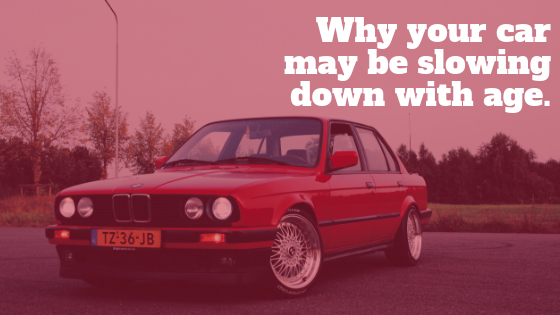
Have you noticed your car slowing down with age? Most drivers don’t push a car to its limits on a track, but that doesn’t mean that a slip in engine performance isn’t noticeable – especially when merging onto a highway. For true gearheads, the root cause isn’t usually that hard to diagnose, but for day-to-day drivers, it can be a bit tougher, and even result in higher maintenance bills.
Noticing a lack of get-up-and-go in your ride? Here are a few potential causes:
Old, Dirty Air Filters
It’s called a combustion engine for a reason – and that combustion requires oxygen. A clogged or dirty air filter can cause decreased or even contaminated airflow into the engine, both of which can restrict performance. Make sure you’re regularly cleaning out and replacing your oxygen filter – if you don’t, your car can even have trouble starting up, as the dirt the filter is *supposed* to be catching can pollute the rest of the engine and even affect the spark plug.
You wouldn’t run very well without oxygen. Your engine is the same way, only made of metal and a lot cooler.
Carbon Deposits On Valves
So, you cleaned up that old air filter and now your engine has all the oxygen it needs to perform. Great job! That still might not do the trick, though.
Here at Berryman, we know the value of having a pristinely clean fuel system – it’s the basis for our Chemtooler product. Remember that air we just talked about? Well, if your valves can’t close all the way (or as fast as they’re supposed to), that oxygen can escape during the compression stroke process. This is caused by buildup on the intake valves themselves, and can rob your car of power or cause backfiring. Nobody wants that!
Low Tire Pressure
This one obviously has nothing to do with the engine, but it can make a world of difference, especially as the leaves finish turning and the temperature drops around us. Noticing decreased acceleration and overall performance in the winter? That may be a tire pressure issue.
Getting into a car during the winter can be agonizing (at least when a cozy bed is just a few steps away), but it’s not just the interior of the car that’s been getting cold overnight – everything else is, too. That includes the air inside of the tires, and as we all know, when gases cool down, they contract. That means that your tire pressure may actually be lower than expected – and can lead to a surprising loss of performance.
